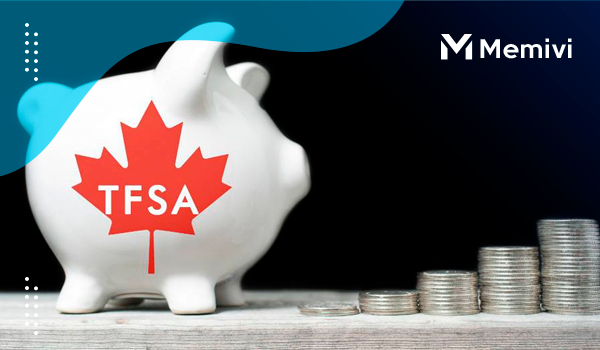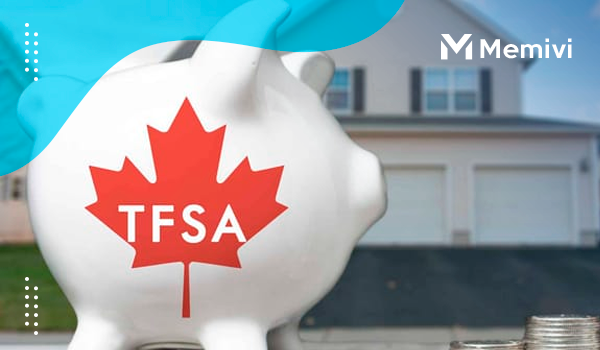
Not saving for your retirement is a costly mistake for any age. It is difficult to save for retirement when you are in a low-income situation. There are some things that you can do to help you save for retirement. To start, you can get a Registered Retirement Savings Plan (RRSP) or invest in mutual fund. You can also save money by contributing to your CRA or the Canada Revenue Agency.
If you want to save even more, you can consider investing in company stock. The decision to start saving for retirement is important, but it is important to start early so that you can save as much as possible in order to retire in a financially comfortable situation.
Saving for retirement is an important part of the financial planning process. The reason for this is that it is imperative to have a good retirement plan, in order to ensure that you can make ends meet in your old age.
A retirement plan is important because it can be a lot easier to live off of the money you have saved in your retirement account. If you are planning to retire sooner than later, it might be worth investing your money in the stock market to earn more money than you can in a retirement account.
What is a Tax-free savings accounts (TFSA)?
A Tax-Free Savings Account is a special type of Guaranteed Investment Certificate (GIC) that is not taxed on interest, capital gains or dividend income. The TFSA is a great option for Canadians who have some money to invest, but don’t want to pay taxes on their investment gains.
Furthermore, a tax-free savings account, or TFSA, is a type of account that offers tax-free savings in Canada. It can be used to save for retirement, college, the purchase of a business, or the purchase of a first home. The TFSA holds cash, stocks, bonds, mutual funds, and other investments. The TFSA is a type of investment account just like a regular investment account.
The importance of Tax-free savings accounts
According to the Financial Post Survey, just 62% of Americans have savings accounts. If you’re not one of these people who value savings accounts more than their value purchasing wants, consider saving in a tax-free savings account. There are many benefits of saving in a tax-free savings account that make it a good idea.
The best benefit is it allows you to earn tax-free interest on your savings, along with some other benefits. The most important benefits of a Tax-Free Savings Account, however, is its flexibility. If you want to invest your money in a certain product, a Tax-Free Savings Account allows you to do it without worrying about the taxes on it.
Is it okay to max out withdrawal limit from TFSA?
The Canadian government has established and controls the rules, and regulations apply to any person with a TFSA. The funds in a TFSA are not subject to estate taxes, capital gains taxes, or RRSP/RRIF withdrawals.
However, the TFSA rules state that all contributions must be made by an individual or by their spouse or common-law partner, and that the TFSA account holder must be 18 years of age or older. Since a TFSA is a registered account, a TFSA account holder would need to be a resident of Canada in order to qualify for a TFSA.
Now, to answer the question, it is a general rule that you don’t max out your withdrawal limit from TFSA because non-registered investments can be transferred in this account. Making your savings or other capital gains free from Taxes.
Also, the withdrawal limit of TFSA is only at $88,000 – all-time. If you want to max out this money, it is advisable that you do it earlier after retirement rather than making gradual withdrawals. This is to take advantage of the current low tax brackets which allows less lifetime tax.
Furthermore, taking out funds from Canada Pension Plan and Old Age Security. Or any other federal or government benefits all at once can be a great retirement financial planning strategy.
The benefits of having a Tax-Free Savings Account
Tax-free savings accounts have been around since 2009 and have become more and more popular in recent years. Whether you’re wanting to use your tax-free savings account to help give you a financial boost, or whether you’re just looking to place your money into a more secure tax-free account, this blog will help you decide whether or not a Tax-Free Savings Account is for you.
- No penalties for withdrawals
A Tax-Free Savings Account (TFSA) is a great way to save for a rainy day, retirement, or even a home purchase. It’s also a great way to avoid penalties for withdrawals. With the new TFSA withdrawal rules, Canadians can withdraw the full amount of their TFSA without incurring a penalty. Like RRSPs, TFSA accounts are tax-free. Unlike RRSPs, they don’t have a lower withdrawal limit. That means you can withdraw as much money as you want with no penalty.
- Investor can carry the funds year-to-year
Having a Tax-Free Savings Account is a great option for those who are planning their retirement or need help with financial planning. While it is possible to invest in the stock market with investments carried through your Tax-Free Savings Account, the benefit of a Tax-Free Savings Account is that it can be used to invest and carry funds over the course of the year, as opposed to being restricted to a single investment per year.
- There is no upper age limit
It is important to have a Tax-Free Savings Account (TFSA) in order to benefit from the tax free growth. However, most people don’t realize that there is no upper age limit for a TFSA. This means that you don’t have to stop contributing to your TFSA once you hit retirement age. In order to take advantage of this, make sure that you start contributing as soon as possible, even if you are just starting out with your career.
- Other federal income-tested benefits are not impacted
A tax-free savings account is a type of account that offers tax-free growth, tax-free withdrawals or both. The best part is, the money in these accounts does not affect your income-tested benefits, so a person with a tax-free savings account can keep all the benefits of their benefits, including the Canada Pension Plan (CPP), Old Age Security, and GIS programs.
- No tax on savings
Tax-free savings accounts are a popular way to save aside from a traditional bank account. These accounts offer you the chance to earn interest, with no tax on the interest. Now, Tax-Free Savings Account (TFSA) is a special account that Canadians can open with a financial institution to save for retirement, for an emergency, for a child’s education, for a child’s post-secondary education, for a spouse, for a family member, for a special purpose, or for any other purpose allowed by the Canada Revenue Agency.
Should you get a Tax-free savings accounts for retirement?

With the recent tax changes, you may want to consider getting a Tax-free savings account for retirement. A Tax-free savings account is a type of investment account that is not taxed in the year it is earned or when the money is withdrawn. This can be a great way to put money away for retirement, as the interest earned is not taxed. This allows people to save more money for their future and have the lifestyle they want if they wish to stop working when they reach a certain age.
Final thoughts
This article is meant to serve as a guide for anyone who is looking to make the most of their retirement nest egg by investing in TFSA and non-registered accounts. By taking the time to read this blog post, you will be able to achieve success in the retirement planning process.
This article is also a great primer for anyone who is interested in building a strategy for their retirement account. Learning about different investment and savings accounts will help you do just that!



 Why contributing to a TFSA is a good resolution? <p class='sec-title' style='line-height: normal; font-weight: normal;font-size: 16px !important; text-align: left;margin-top: 8px;margin-bottom: 0px !important;'> Learn how TFSAs can provide flexibility and savings benefits for high income investors, and even those with low-income levels. </p>
Why contributing to a TFSA is a good resolution? <p class='sec-title' style='line-height: normal; font-weight: normal;font-size: 16px !important; text-align: left;margin-top: 8px;margin-bottom: 0px !important;'> Learn how TFSAs can provide flexibility and savings benefits for high income investors, and even those with low-income levels. </p>  Compare the best GIC rates in Canada 2023 <p class='sec-title' style='line-height: normal; font-weight: normal;font-size: 16px !important; text-align: left;margin-top: 8px;margin-bottom: 0px !important;'> Learn how to invest safely in GICs and take control of your financial future. Learn about the top GICs rates in Canada in this article. Continue reading. </p>
Compare the best GIC rates in Canada 2023 <p class='sec-title' style='line-height: normal; font-weight: normal;font-size: 16px !important; text-align: left;margin-top: 8px;margin-bottom: 0px !important;'> Learn how to invest safely in GICs and take control of your financial future. Learn about the top GICs rates in Canada in this article. Continue reading. </p>  Target-date funds in CanadaTarget-date funds in CanadaTarget-date funds in Canada <p class='sec-title' style='line-height: normal; font-weight: normal;font-size: 16px !important; text-align: left;margin-top: 8px;margin-bottom: 0px !important;'> Learn how some Canadian investors use the strategy in switching target date funds to contract higher profits. Learn more. </p>
Target-date funds in CanadaTarget-date funds in CanadaTarget-date funds in Canada <p class='sec-title' style='line-height: normal; font-weight: normal;font-size: 16px !important; text-align: left;margin-top: 8px;margin-bottom: 0px !important;'> Learn how some Canadian investors use the strategy in switching target date funds to contract higher profits. Learn more. </p>